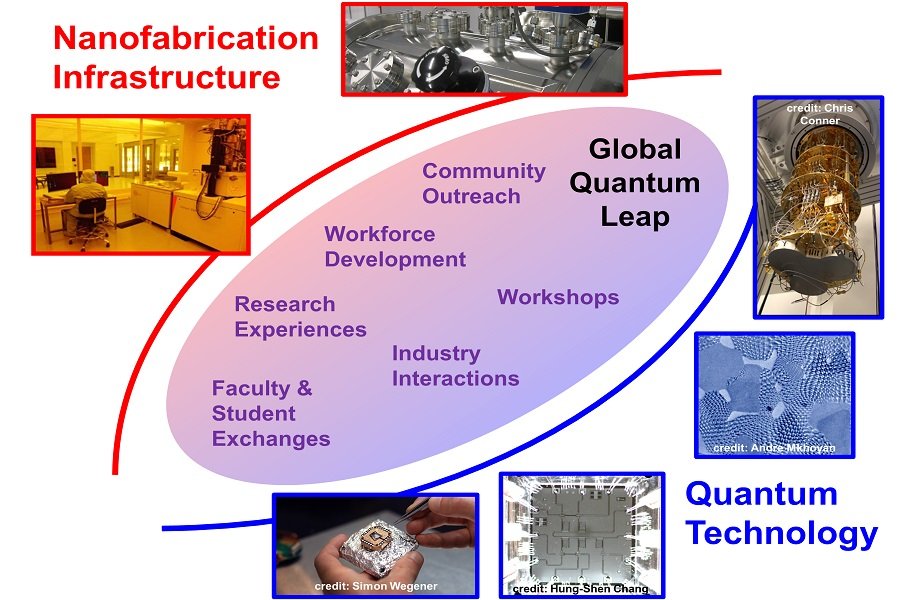University Scientists to Lead NSF-Funded Global Quantum Leap

The University of Minnesota has been awarded a $2 million grant by the NSF to lead the Global Quantum Leap (GQL), a project that will advance technical progress toward the development and widespread implementation of quantum information systems. GQL will be led by ECE’s Prof. Steven Koester, Louis John Schnell Professor in Electrical and Computer Engineering. Prof. Vlad Pribiag from the School of Physics and Astronomy will be a co-principal investigator on the project. The University’s news release on the announcement is available here.
GQL will establish a “network of networks,” connecting nodes in the National Nano Coordinated Infrastructure (NNCI) with institutions in other countries conducting research in quantum information sciences. The impetus to establish such a meta-network stems from the vision that successful implementation of the quantum revolution entails changes to the current nano-manufacturing infrastructure, which can be successfully achieved through global collaboration.
The key goals that GQL seeks to achieve include connecting the nanofabrication and quantum computing communities across the globe, creating a strategy that will guide emerging quantum computing systems, and training emerging scholars and researchers in the field with the necessary skills to collaborate with international teams working on quantum science. The GQL will also place an emphasis on providing students, postdoctoral scholars, and faculty with intercultural communication and teamwork skills so they can work effectively across borders on large and complex projects. For this reason, the team also includes Prof. John LaVelle, from the College of Education and Human Development at the University, who will evaluate the outcomes of the program activities, to ensure that they meet these educational goals. Knowledge developed through GQL will be transferred to the NNCI to develop new equipment and processes tailored to meet the needs of the academic and industrial quantum community.
Set up under the NSF’s AccelNet program (Accelerating Research through International Network-to-Network Collaborations), GQL’s international partners include Nanoplatform Japan, Matter and Light for Quantum Computing (ML4Q, a Cluster of Excellence supported by the German Research Foundation), European OpenSuperQ, and the Chicago Quantum Exchange, a domestic partner with collaborators in the Netherlands and Australia.
The Accelerating Research through International Network-to-Network Collaborations (AccelNet) program is designed to accelerate the process of scientific discovery and prepare the next generation of U.S. researchers for multiteam international collaborations. The AccelNet program supports strategic linkages among U.S. research networks and complementary networks abroad that will leverage research and educational resources to tackle grand scientific challenges that require significant coordinated international efforts.
The University’s news release on the announcement is available here.